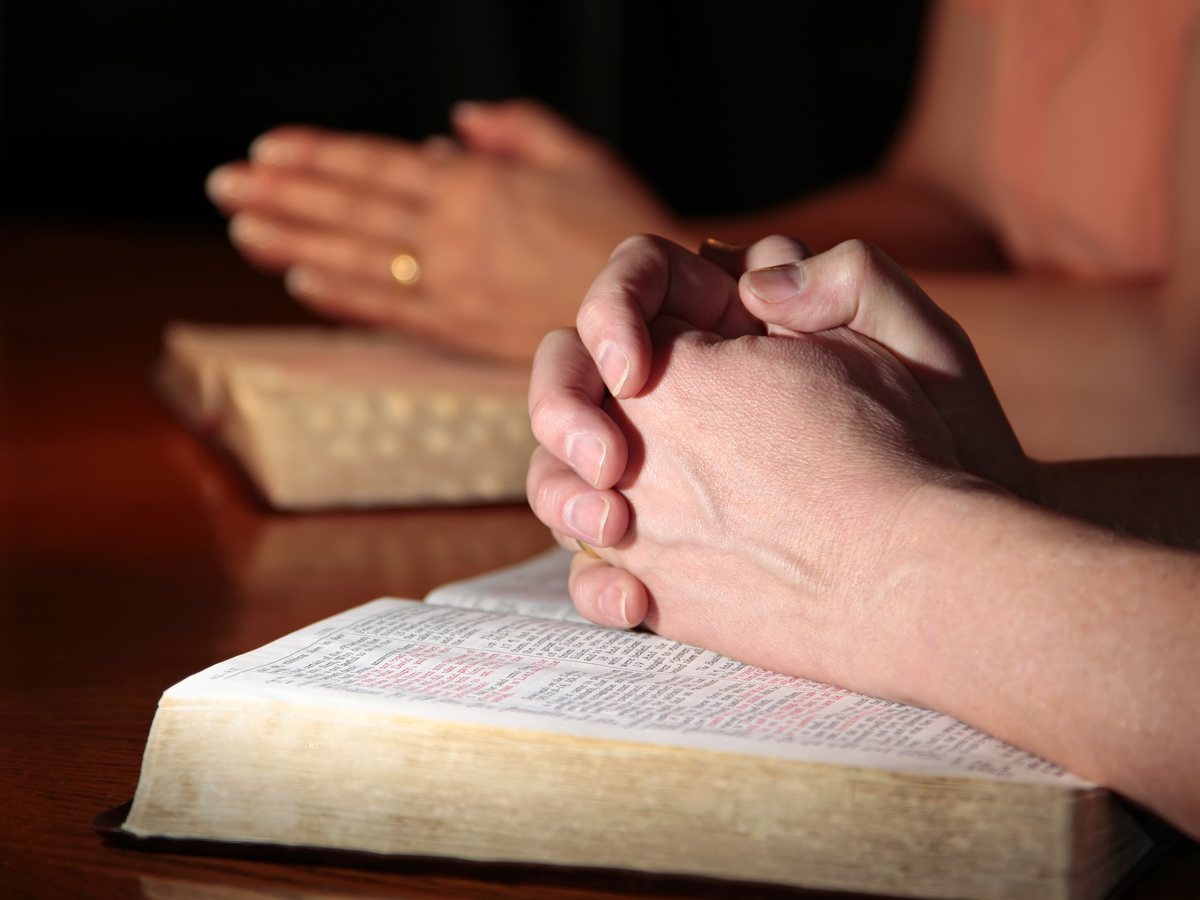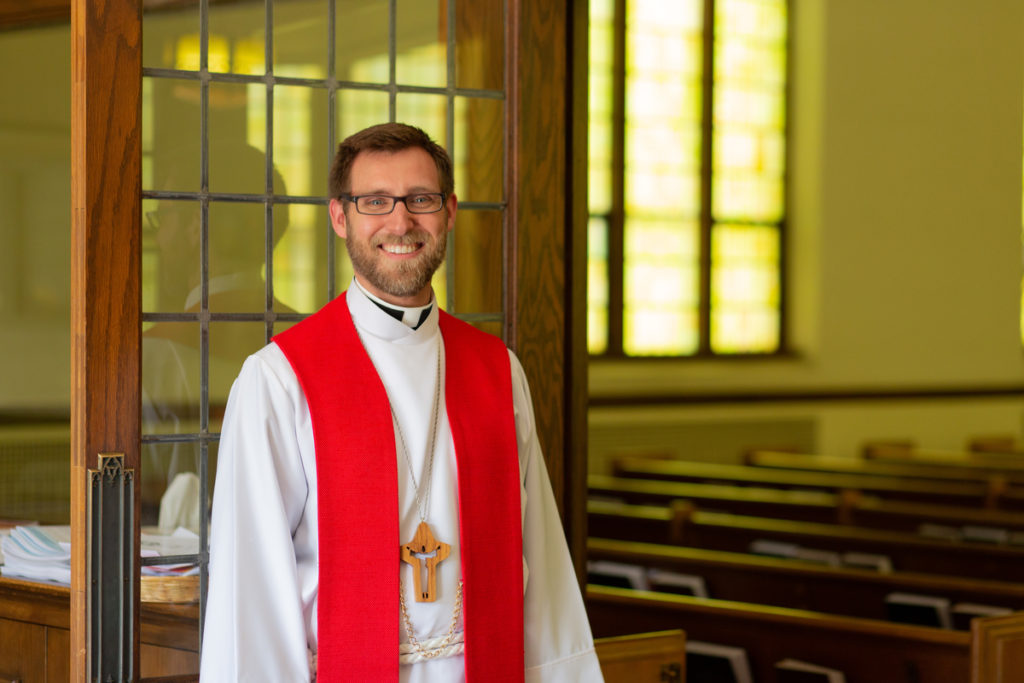In my introduction to intercessory prayer, I shared some of its historical background and some of its salient characteristics in the Catholic, Orthodox, and Protestant traditions. I wrote:
Intercessory prayers have a very long history as the prayers of and by the whole people of God, the Body of Christ himself. They are the Church praying for the Church, the world, the ruling authorities, and those in any tribulation, distress, or sorrow; for peace, for the propagation of the Gospel; for our enemies; for every manner and estate of humanity; for children and catechumens; for favorable weather and harvest; for deliverance from every affliction, wrath, danger and need; for the faithful departed; and for the salvation of those praying and for all people. Such intercessory prayers as we write and speak ought to be mindful of this long history, and the cloud of witnesses with whom we are praying. They rightly should possess the Roman virtues of terse, simple, elegant directness, and the Eastern virtues of intense devotion, evocative language, and reverence. They ought not to be mini-sermons, private opinions, lectures, or casual, off-the-cuff “Lord I just wanna’s”!
Now I’ll take you through some of the process by which I compose the weekly intercessory prayers that are distributed to some folks via email and that are also available on the CORE website. I’ll use a concrete example: the prayers for February 27, 2022 – The Transfiguration of Our Lord, Cycle C.
That’s important: I write prayers that are specific to the season, festival, and cycle of the Church calendar. You’re not required to focus on these, but the Scripture readings appointed for any Sunday, and the significance of a feast day, will enrich and focus your petitions. The lessons can shape their thrust and phrasing. Additionally, this helps people to intentionally “pray the Scriptures” in their private prayer life, strengthening the connection between corporate and personal prayer.
The hymn selections also provide sources of imagery and language. When people hear a phrase from, say, “Beautiful Savior” in a petition, they see that hymns can be prayed. You’ll see an example of that in a moment.
Congregations use different lectionaries and hymnals. If there are alternative texts, the first is from Sola/LCMS, the second is the ELW/RCL. I’ve left out hymn numbers below.
Deuteronomy 34:1-12: (The death of Moses after God shows him the Promised Land; no one has arisen like Moses, whom God spoke to as a friend, face to face)
RCL/ELW: Exodus 34:29-35: (The shining face of Moses)
Psalm 99: (Extol the Lord, who spoke to his servants Moses and Aaron in a pillar of cloud. You, Lord, love justice and establish equity; you forgive sin and avenge wrongdoing)
Hebrews 3:1-6: (Moses was faithful as a servant in God’s house. Jesus is faithful as the Son)
RCL/ELW: 2 Corinthians 3:12-4:2: (We look upon the Lord with unveiled faces. Being transfigured from glory unto glory, we put aside shameful practices, commend ourselves to everyone in the sight of God)
Luke 9:28-36: (The Transfiguration of our Lord)
*******
Opening Hymn: O God Beyond All Praising (Hint, hint, the intercessory prayers for today echo phrases of it.)
OR Blessing and Honor
Hymn of the Day: O Wondrous Type!/ O Vision Fair!/ O Wondrous Image, Vision Fair
OR Swiftly Pass the Clouds of Glory
Communion Hymns: How/Tis Good, Lord, to be Here; Beautiful Savior
Closing Hymn: In Thee is Gladness OR Alleluia, Song of Gladness
That’s our “raw material.” We also keep in mind those things for which we are commanded to pray: The Church; our persecuted brethren; our community, nation, and world, especially leaders and institutions; our enemies; the sick and all who suffer; our local congregation; proper stewardship of creation; peace, justice, forgiveness, hope, and faith. Additionally, we pray for specific concerns, ranging from local issues to global pandemics. The lectionary may suggest other petitions: marriage, those in prison, farmers, etc. A specific feast day may guide other petitions. Grounding intercessory prayer in these rich resources will prevent us from praying too narrowly for “we, ourselves, and us.” Over time, we will lift all manners of people and situations before God.
I begin with a petition which responds to the Scripture/day, and/or thanks and praises God. This sets a theme for what is to come. Next, comes the universal Church; the persecuted Church; and the local congregation. (Here may also be prayers for missionaries, seminaries, raising up new pastors and evangelists; discipleship, etc.) There’s a petition for our nation and world; our leaders, in politics and society; and health, peace, and justice among all people. There may be a specific petition for all who stand in harm’s way to establish health, safety, justice, and freedom. Something suggested by the Scriptures or the time of year comes next. The needs of all who suffer follow. The final petition entrusts the faithful departed to God’s care, asks guidance for our life, and looks to our final redemption. Simple!
Next: how do we phrase each petition? My assisting ministers have (sometimes unknowingly) helped me! They may not have read them beforehand. Convoluted sentences and flowery language can trip them up. I have come to appreciate that Roman virtue of terse, elegant phrases! Here’s the prayer for Transfiguration.
Let us draw near to the Light of Christ, offering prayer and supplication on behalf of the Church, the world, and one another.
A brief silence
Reaction to the day/thanks/opening theme: Father, today we kneel in adoration before the majesty your Son, revealed in his Transfiguration. But sometimes, our devotion grows cold. Sometimes our prayers and worship become half-hearted and routine. Sometimes we treat Jesus like a buddy we can call on if we need something from him. Kindle our hearts, minds, and spirits always to worship and obey him with holy fear, deep joy, and fervent love.
Lord, in your mercy, hear our prayer.
Universal Church: O God beyond all praising, we worship you and adore your glory, revealed in the face of your beloved Son. Grant that your Church listens to his word and holds fast to him in its heavenly calling. Make it bold to preach Christ alone as the way of salvation. Let it proclaim to the whole world his blessings without number and his mercy without end. (Note echoes of hymn, “O God Beyond All Praising” in this and other petitions)
Lord, in your mercy, hear our prayer.
Persecuted Church: Grant to your persecuted people confidence and hope, established through the steadfast obedience of Christ their Lord. Give them grace to triumph through their sufferings and rise to serve you even in the presence of those who trouble them.
Lord, in your mercy, hear our prayer.
Local congregation: Let the radiance of our Beautiful Savior fill the hearts and sanctify the ministries of this congregation. Make our worship into a joyful duty, and our service into a sacrifice of praise. Use us to lead others to Jesus, that with us, they may worship, honor, bless and adore him. (Phrases from O God Beyond All Praising, Beautiful Savior, AND Blessing and Honor! Am I good or what?!)
Lord, in your mercy, hear our prayer.
Our nation and world, its leaders, and peace among all: You have appointed your Son as King of creation and Lord of the nations. Teach our leaders to praise your name; to love justice and righteousness; and to seek those things that make for peace. Come to the help of those whose lives are troubled by sorrow and hardship; and draw all people into the glorious and gentle rule of Christ their Savior. (Again, echoes of Beautiful Savior)
Lord, in your mercy, hear our prayer.
For those who suffer: We lift our hearts to you on behalf of all whose lives are clouded by any sort of affliction or sorrow, including: {List}. Let the light of Jesus’ countenance heal and cheer them. Let all who care for them do so with tenderness and compassion; and grant that together we may praise you for your unending mercies.
Lord, in your mercy, hear our prayer.
Remembrance of faithful departed; prayer for guidance and salvation: O Lord, our Beautiful Savior, those who have died trusting in you now see you face to face. Thank you for that final, best gift! Continue, we pray, to show to us your amazing love. Though we are your unworthy servants, bless us with such good gifts as will sustain us and others in this life. Bring us, in your good time, into the joy you have prepared for all whom you have redeemed. Give us voices there to sing unceasingly, “Glory and honor, praise, adoration, now and forevermore be thine!”
Lord, in your mercy, hear our prayer.
For all these things, dear Father, and for whatever else you desire for us in your wisdom and compassion, we pray in the name of Jesus, our Savior, Lord, and King. Amen.
Because I’m writing for many congregations, often weeks ahead, I expect each user to insert or amend petitions as needed in that setting. Additionally, although these are written, they can be enriched by extemporaneous prayer petitions as the Spirit moves. That leads to my final point: extemporaneous public prayer. Whether you’re a pastor, council person, Stephen minister, or a friend responding to a friend, you will be called upon, or be moved, to offer up prayer. This can strike terror in the heart. This is where we ramble, get lost in “Lord I just wanna,” or offer advice in the guise of prayer.
Here’s where the Romans come to the rescue again! The Roman Church perfected the collect (KOLL-ekt): a short, pithy, topical prayer form. It’s comprised of: Address to God; statement of some divine attribute; petition/request; reason or result of request; conclusion.
Think of a short business letter form. Let’s compare 2 entities: a letter asking for a donation to an animal shelter, and a collect for a friend who just learned she has cancer.
Dear John and Nancy,
As fellow animal lovers, I know you’re concerned for the plight of homeless pets.
I’m inviting you to donate nutritious food (dry or canned), or gently-used toys and bedding, during our upcoming Pet Friendship Drive.
This will benefit homeless pets while they’re in our care – and they’ll be able to take a familiar toy or bed to their forever homes!
Thanking you in advance, I remain your pet-loving friend, George
Dear Lord Jesus, our beloved Good Physician,
Your heart was moved by compassion by the prayers of sick and hurting people.
Draw near to my friend Josie. Give her strength and courage, and bless her doctors with wisdom and compassion as she begins this difficult journey.
Provide all that’s needed so that she can take each step with confident faith and dauntless hope, knowing you are always with her.
This I pray in your holy and precious Name.
Let the situation guide your “letter.” Appeal to the quality in God that addresses your concern. Be brief and honest in your petition. Envision an outcome that’s concrete but open-ended. Say thank you, and you’re done!
In fact, one way to compose intercessory prayers is to frame them as modified collects. You don’t have to include the salutation and sign-off with each petition; leave the former for the first one; and let your final sentence be the sign-off. But it will focus your thoughts and encourage brevity. This format also trains the ear of the hearer to know where you’re heading in prayer. That helps them to silently participate in it, or at least to give their “Amen” as hearty assent and not merely hearty relief.
I hope these articles have been helpful as you ponder the place of intercessory prayer in the liturgy, its composition, and its ramifications for all the faithful in their own prayer life.



















